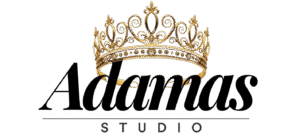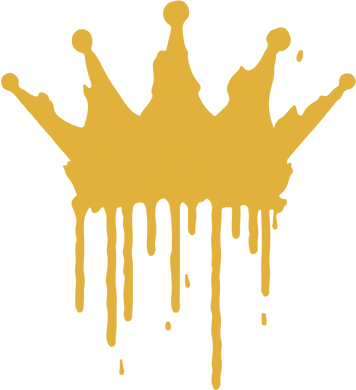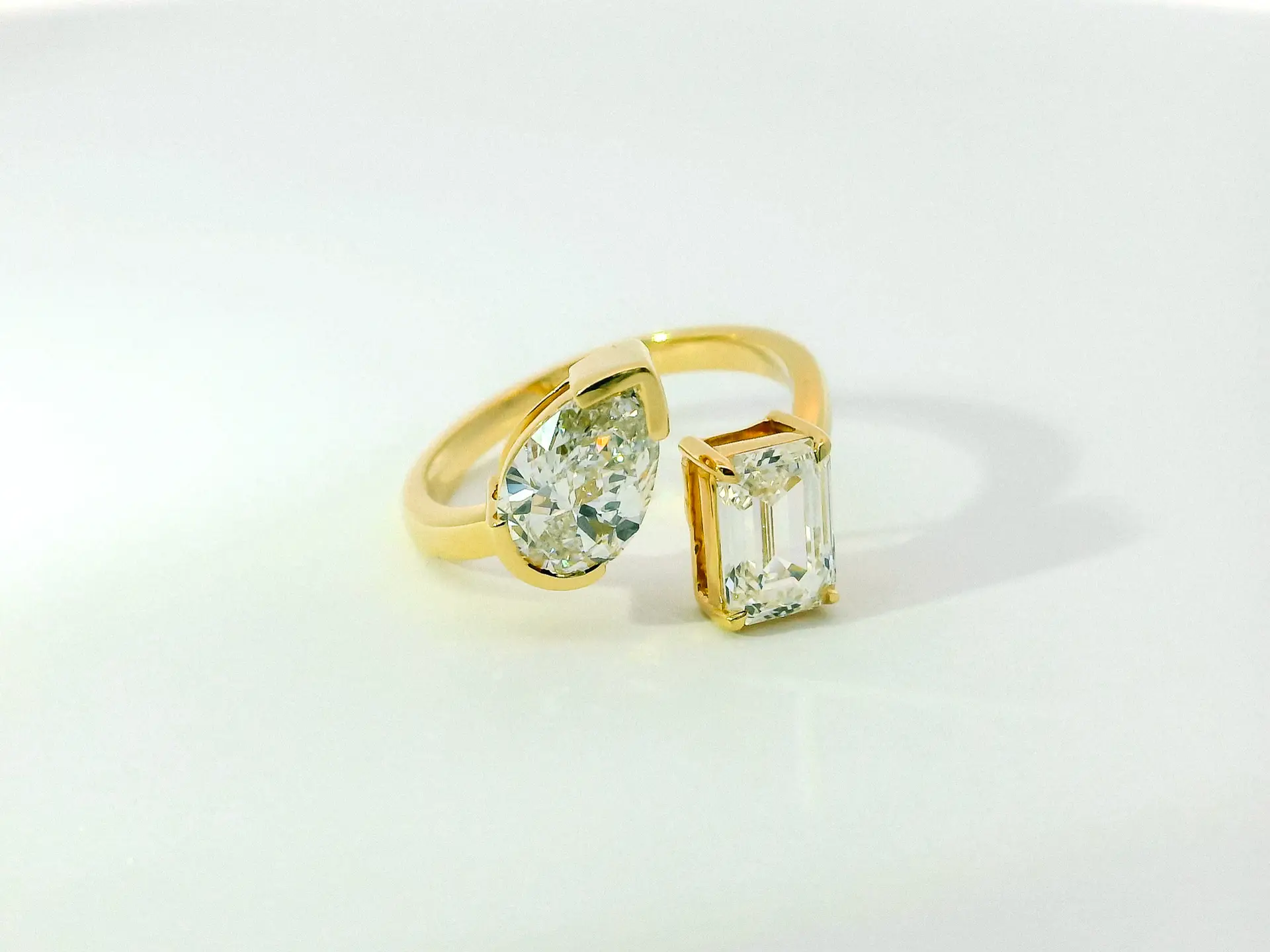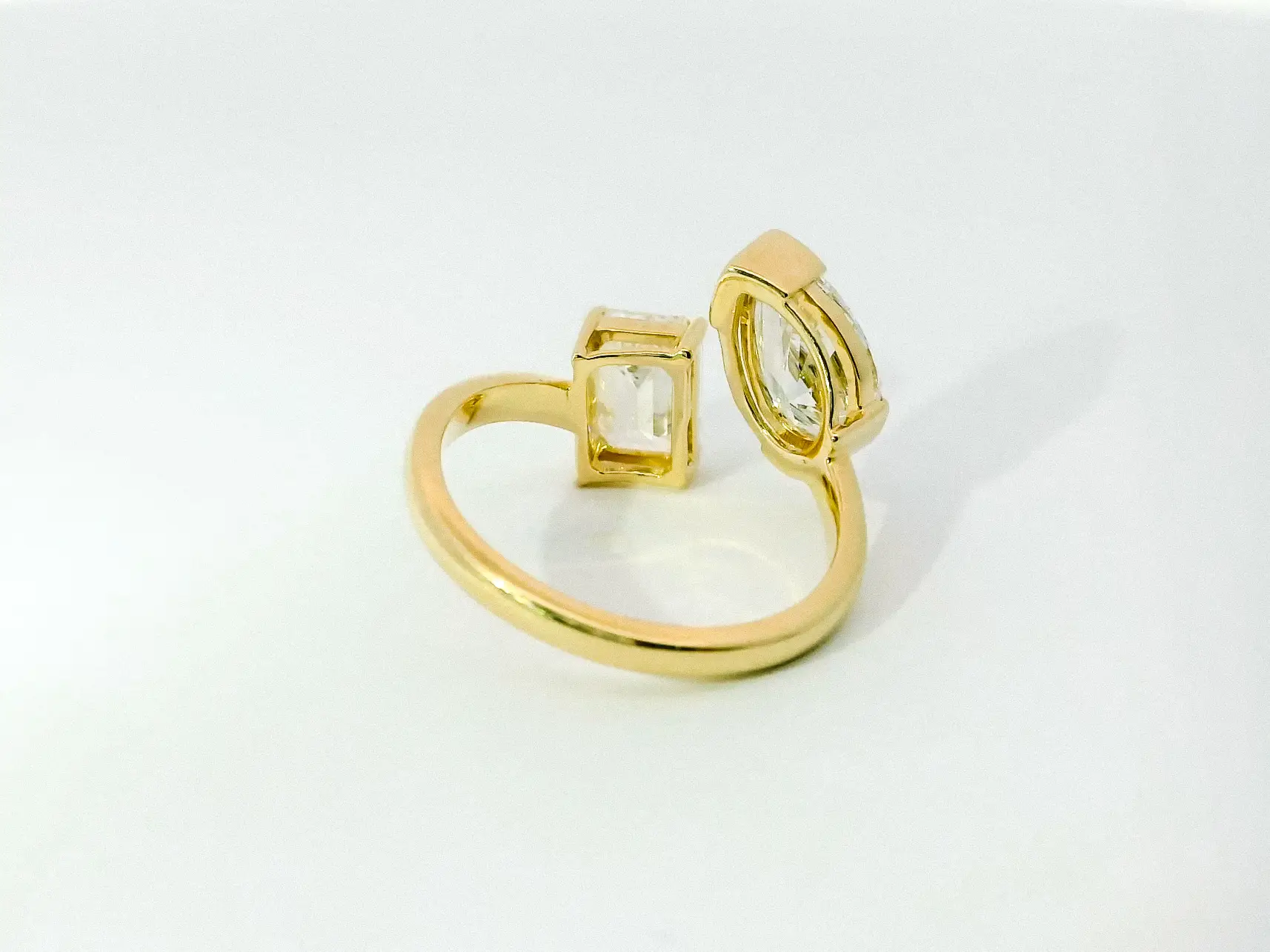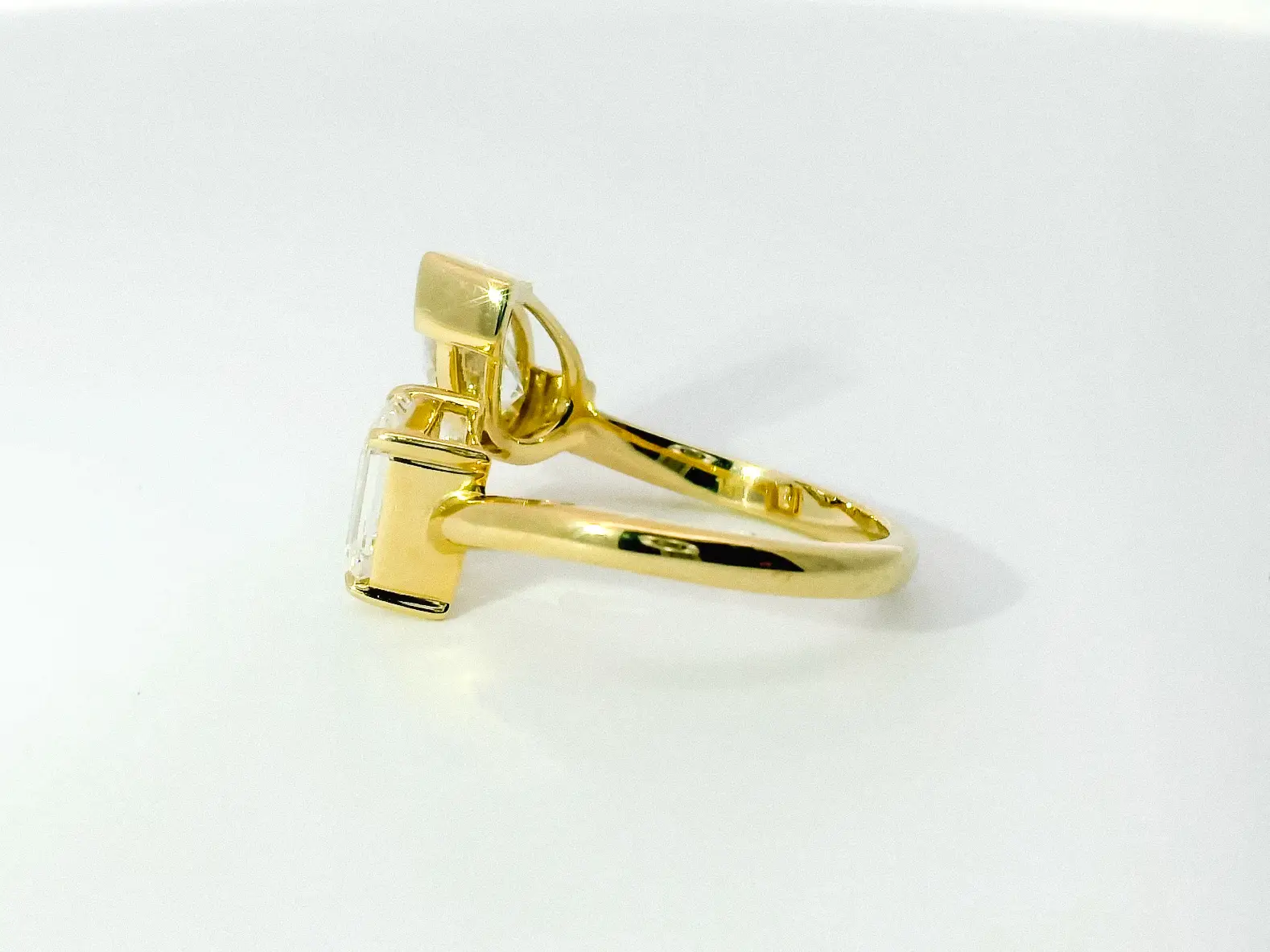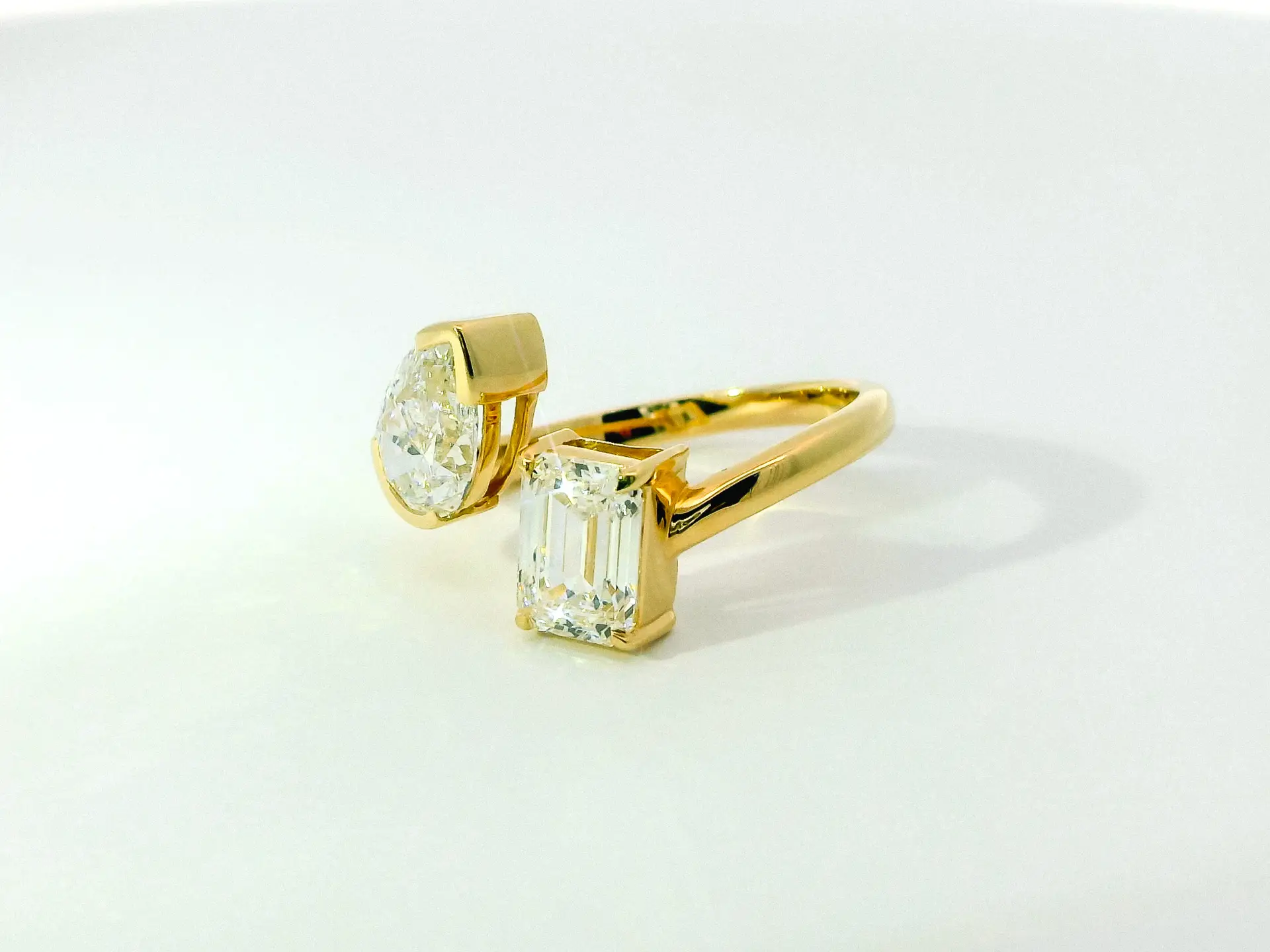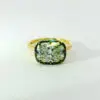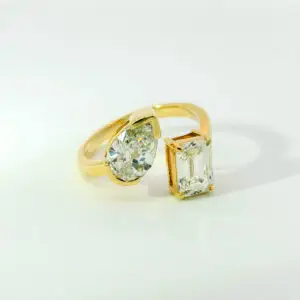Some matches were just meant to be – like coffee and early mornings, or you and this ring.
Ellie pairs the clean, geometric precision of a 1-carat emerald cut diamond with the soft, organic curves of a 1-carat pear cut: it’s a little bit of contrast, a little bit of harmony, and a whole lot of brilliance.
The pear is wrapped in a protective half-bezel setting, keeping its delicate tip safe while still letting the light in, and the emerald sits in petite prongs that highlight its crisp, mirror-like facets. Perched on a 14k yellow gold offset band, Ellie adds a literal twist to tradition, with an open-bottom basket that maximises sparkle from every angle.
As striking as she is, Ellie is also a blank canvas for your creativity. Swap in sapphires for a splash of colour, choose birthstones for a personal touch, or make her entirely your own; because rules were made to be rewritten.
Who Is Ellie?
Ellie is the friend who makes life feel like an adventure. She’s effortlessly cool, always up for a spontaneous weekend trip, and somehow manages to pull off every outfit with zero effort. She works hard, plays harder, and has a knack for making everyone around her feel like the most important person in the room. She’s warmth, individuality, and confidence wrapped into one – just like her namesake ring.
Stone Shape: Emerald Cut & Pear
Centre Stone Carats:
•Emerald: 1.0 ct, F, VVS2
•Pear: 1.0 ct, F, VVS2
• Total Carat Weight: 2.0 ct
• Centre Stone Color: D-F
• Centre Stone Clarity: VVS1-VS1
Band/Setting:
•Band: 14k Yellow Gold, 2mm Wide, Rounded & Offset
• Shoulders: Plain
•Setting: Petite Prongs for the Emerald, Half-Bezel for the Pear
• Setting Height: 3.8mm
When you’re buying such a beautiful piece of jewelry, knowing your ring size is essential; no one wants a ring that’s too tight to get past the knuckle, or so loose it ends up in the sink drain. With these techniques and tips, you can measure your finger like a pro – no awkward jeweller visits required.
1. Using an Existing Ring
If you already have a ring that fits perfectly, this method is your best bet:
- Trace the Inner Circumference: Place your ring on a piece of paper and carefully trace the inner edge with a fine-tipped pen. Precision is key here!
- Measure the Diameter: Use a ruler or tape measure to determine the distance across the widest part of the circle. Match this to our size chart below.
- Pro Tip: Use digital calipers for hyper-accurate measurements. Borrow one from a handy friend or pick up an inexpensive one online.
2. Using String or Paper
For a quick and easy DIY option, grab a piece of string, dental floss, or paper: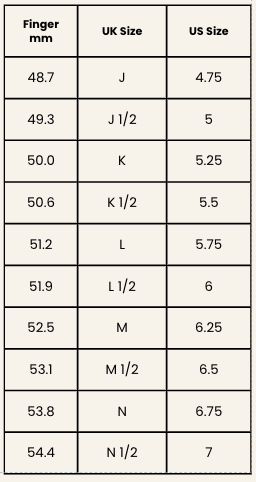
- Wrap and Mark: Wrap it around the base of your finger (where the ring will sit), mark where the ends meet, and then measure the length with a ruler.
- Watch Your Tension: It should be snug but not tight. Too loose, and your ring might slip off; too tight, and it won’t slide past your knuckle.
- Pro Tip: Repeat this method a few times to ensure consistency. Temperature and time of day can affect your finger size—fingers tend to swell in the evening or when warm.
3. Using a Finger Sizer
Invest in an inexpensive plastic finger sizer (or request one from us):
- Easy Read: Pull the end through the loop, snug it around your finger, and note the size.
- Test the Knuckle Fit: Your ring size should slide snugly over your knuckle without excessive force. If you’re between sizes, opt for the larger one.
- Pro Tip: Keep the sizer handy for future jewellery adventures!
Additional Tips for Accuracy:
- Account for Time of Day: Fingers are smaller in the morning or when cold, and larger in the evening or after activity.
- Knuckle Test: If your knuckles are wider than the base of your finger, measure both and choose a size that balances the two. Comfort-fit bands are a great solution for this.
- Consider the Band: Wider bands fit snugger than narrow ones. If your chosen ring is wide, you might want to size up slightly.
- Repeat for Assurance: It never hurts to double-check your size using more than one method.

